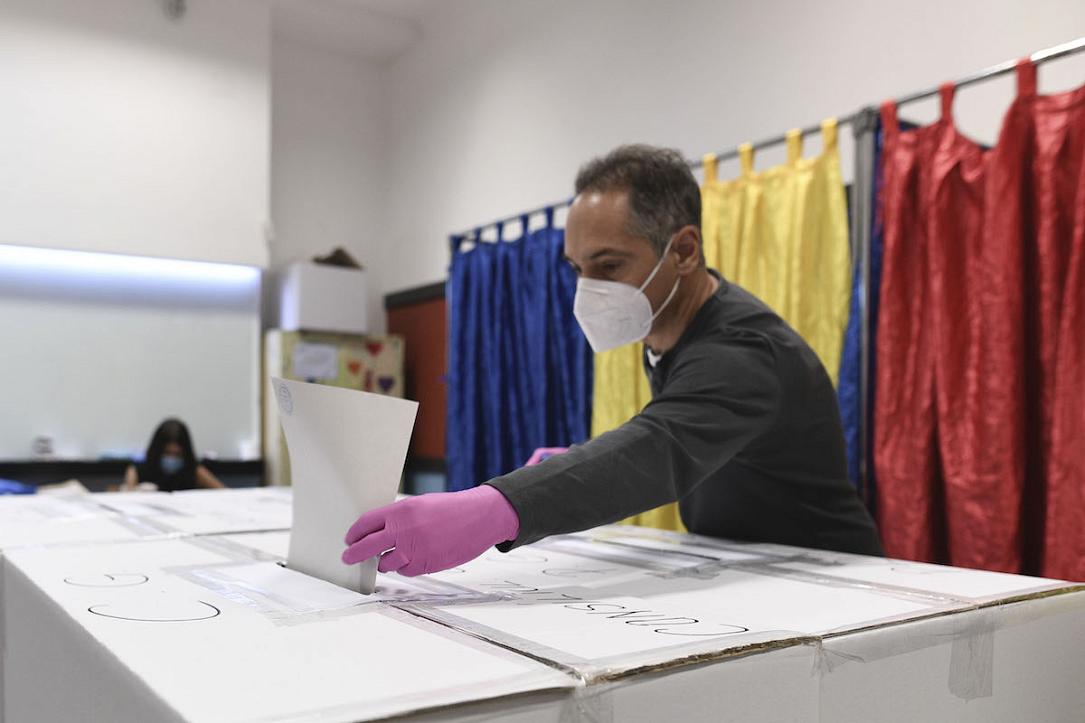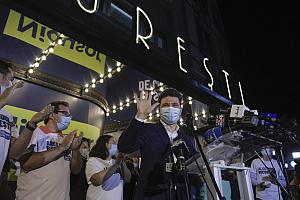Romania local elections: Liberals score important victories in Socialist fiefs, progressists win several big cities

The local elections in Romania on Sunday, September 27, brought some significant changes compared to four years ago. The ruling National Liberal Party (PNL) managed to score important victories in traditional fiefs of the Social Democratic Party (PSD), doubling the number of county council president positions it holds in the new configuration.
The Liberals also won some new mayor positions in big cities previously controlled by the PSD but also lost some mayor positions in several big cities to the progressive USR-PLUS alliance. In Bucharest, PNL and USR-PLUS supported the same candidate, independent Nicusor Dan, who overthrew incumbent PSD mayor Gabriela Firea.
Thus, the Liberals seem to be the big winners of the local elections and USR-PLUS confirmed their status as the third-biggest political force in Romania, while PSD’s influence declined compared to four years ago. Overall, the results are not surprising, as they confirm both the most recent polls as well as the results of last year’s elections for the European Parliament and for president. They are also a good indicator of what could happen in the general elections this December.
Liberals snatch 17 county council president positions, double compared to 2016
The National Liberal Party (PNL) won 17 county council president positions following the local elections on Sunday, compared to only 8 in 2016. Thus, the Liberals defended most of their fiefs (they only lost Calarasi county) and snatched nine more from the Social Democratic Party (PSD), and one from the Hungarian Democratic Union (UDMR).
One of the most important victories was in Vrancea county, where the liberal candidate – senator Catalin Toma, supported by USR-PLUS, managed to defeat PSD’s Marian Oprisan. Oprisan is one of PSD’s most influential leaders and had been at the helm of the Vrancea County Council for almost 20 years.
The Liberals also won Iasi county, where environment minister Costel Alexe defeated PSD’s Maricel Popa. In Iasi, PNL also faced a strong competition from USR-PLUS alliance, which had its own candidates for the County Council and Iasi City Hall. However, the Liberals managed to win by drawing many mayors from PSD in rural areas.
PNL also defeated PSD in Constanta county, Timis, Caras-Severin, Salaj, Maramures, Prahova, and Giurgiu. In Bihor county, liberal Ilie Bolojan, who has been mayor of Oradea for 12 years, won the race for County Council president by a wide margin ahead of the Hungarian candidate.
The Social Democrats still hold 20 County Council president positions after the elections on September 27, but lost eight seats compared to 2016. PSD still dominates in the Oltenia region (southern Romania) and in eastern Romania.
The Hungarian Democratic Union (UDMR) kept four of its five County Council head positions, in Covasna, Harghita, Mures, and Satu Mare, where there are large communities of ethnic Hungarians.
Liberals also win the most mayor positions in large cities
The Liberals also won the most mayor positions in the county capital cities – 15 out of 40, followed by PSD – 14. USR-PLUS and UDMR won four mayor positions each. One of the Liberals’ biggest victories were in Constanta, a PSD fief for many years, where senator Vergil Chitac defeated incumbent mayor Decebal Fagadau and USR-PLUS candidate Stelian Ion. PNL also won the elections for mayor in Targu Jiu, Bistrita, and Giurgiu. The Liberals also won in Iasi, where the former PSD mayor Mihai Chirica sided with PNL and defeated USR-PLUS candidate Cosette Chichirau. In Cluj-Napoca, former prime minister and incumbent mayor Emil Boc won another mandate with almost 75% of the votes, one of the clearest victories for a Liberal candidate.
Meanwhile, the Liberals also lost several mayor positions in large cities where they had been in power for many years. The biggest surprise was in Timisoara, where German Dominic Fritz, representing the USR-PLUS alliance, defeated incumbent mayor Nicolae Robu. USR-PLUS candidate Allen Coliban also beat Brasov’s Liberal mayor Gheorghe Scripcaru. The USR-PLUS alliance also won the elections in Alba Iulia and Bacau. These results, plus those in Bucharest, where USR-PLUS won two of the six district city halls, confirm once again that USR-PLUS is a growing political force in Romania’s large cities, where the voters have grown tired of the traditional political parties (PSD and PNL). However, USR-PLUS lacks the countrywide coverage that PSD and PNL have and is still poorly represented in rural areas, which is why it’s very difficult for them to win county council president positions.
editor@romania-insider.com
(Photo source: Inquam Photos / Alberto Grosescu)
















